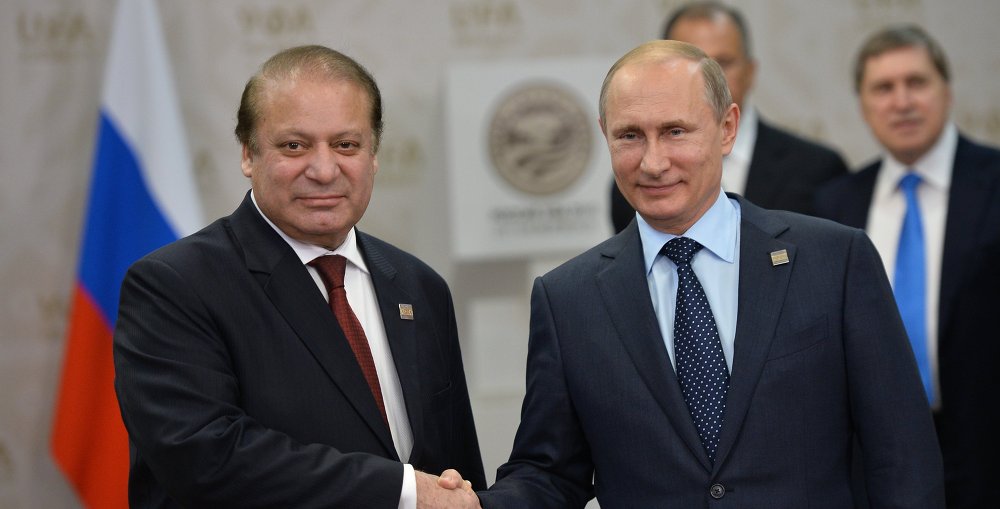Pakistan, Russia, China Set To Come Together On Afghanistan

NEW DELHI: Pakistan’s Foreign Office has said that Pakistan, China and Russia will hold talks in Moscow on December 27 to discuss regional peace and stability, with the focus being on Afghanistan.
We have said this earlier also that peace and stability in Afghanistan is in the interest of Pakistan and the entire region. In this spirit, we remain committed and extend all cooperation to the efforts towards bringing peace and stability in Afghanistan,” FO spokesperson Nafees Zakaria told his weekly briefing in Islamabad.
Zakaria highlighted Pakistan’s role in the peace process in Afghanistan, saying that Islamabad has worked to bring warring factions to the negotiating table. “Whenever we are approached to help bring the warring factions to the negotiating table, we will assist,” Zakaria said.
When asked about recent Pentagon allegations that Afghan terror groups, including the Taliban and Haqqani network, have received shelter in Pakistani territory, Zakaria denied the charges. “This is more of rhetoric than anything else. Afghanistan is infested with most terrorist organizations due to the instability there, which has created space for these terrorist elements,” he said.
“A large number of terrorists have moved to other side of the border after successful launch of major operation near Pakistan-Afghanistan border. The results of our military action are there for everyone to see through peace and stability at the borders” Zakaria added. The FO further stated that the fact that senior members of these groups were killed in Afghan territory in recent months is indicative of where the top leadership is based.
The charge that Pakistan is aiding and abetting terror groups is not new. Afghans have long accused Pakistan of supporting terrorism across the border, as has India -- with Islamabad routinely denying the charge. The contention in fact, has been a thorn in the sides of the relationship Pakistan has with both India and Afghanistan.
Meanwhile, earlier this week, a spokesperson for the Afghan Taliban said that the group is ready for peace talks with the United States if their demands are met. Zabihullah Mujahid said that two conditions for peace talks are the removal of the group leader's name from the U.N. blacklist and the withdrawal of all foreign forces from Afghanistan.
The Afghan government, however, rejected the group’s demands.
Earlier this month, Kabul had expressed displeasure over Russia’s recent disclosure that it maintains “limited political” contacts with the Taliban. The Afghan parliament, in fact, witnessed heated discussions on the issue. Some members of the parliament condemned Russia’s outreach to the Taliban as “shameful” and others accused Moscow of providing warfare to terrorists.
“Yes, we do have contacts [with the Taliban] but they are aimed at ensuring safety of Russian nationals and encourage the Taliban to engage in peace talks [with Kabul],” Russian ambassador to Kabul Alexander Manitsky said earlier in the month. Responding to the criticism, Manitsky pointed out that United States, Britain, Italy, Qatar and Saudi Arabia all maintain relations with the Taliban.
The comments prompted the lower house of the Afghan legislature to pass a resolution urging President Ashraf Ghani’s government to prevent neighboring and regional countries from interfering in internal Afghan matters “on the pretext of supporting the Taliban to fight Islamic State.”
The United States too, criticised Russia’s comments. U.S. commander of NATO’S Afghan mission, General John Nicholson openly criticised Moscow for giving “overt legitimacy” to the Taliban. “Their [Russia’s] narrative goes something like this: that the Taliban are the ones fighting Islamic State, not the Afghan government. And of course, the Afghan government and the U.S. counterterrorism effort are the ones achieving the greatest effect against Islamic State,” Nicholson has said (as quoted in VoA). Gen. Nicholson added that Russia is using its public legitimacy to “essentially” undermine the Afghan government and the NATO effort, and “bolster the belligerents.” Sources, however, say that it is unlikely that Russia is interested in aiding the Taliban as that will only contribute to further chaos in the region.
The upcoming meeting between Pakistan, China and Russia, therefore, needs to be located in the above context.



